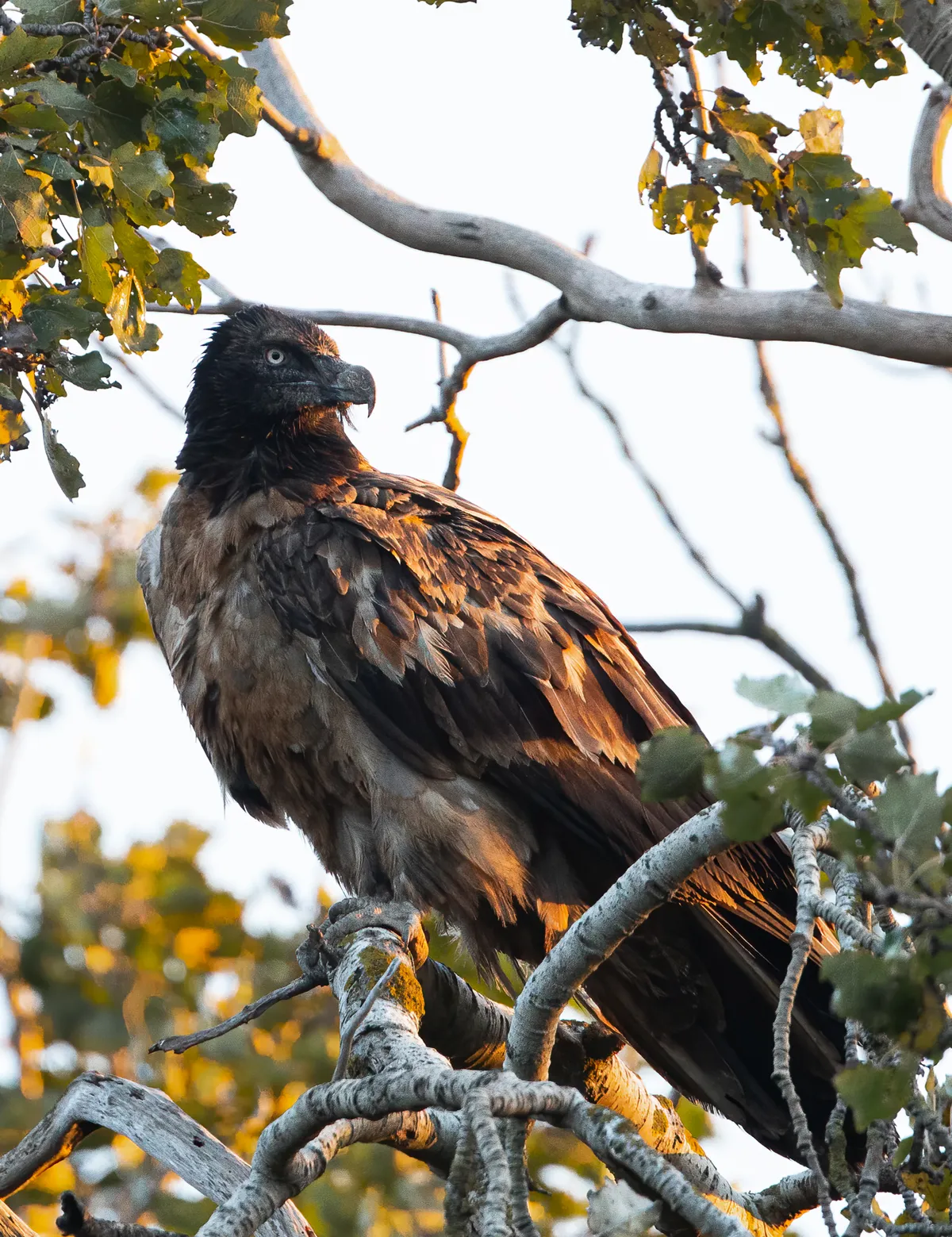The Vulture Conservation Foundation (VCF) has revealed the origin and sex of the bearded vulture in the UK. Dubbed ‘Vigo’ and seen by hundreds of keen birdwatchers, she is only the second bearded vulture to be seen in the UK, and there were many speculations as to where she had come from.
She had no ring, tag or markings, but local Yorkshire birder David Ball found and collected two feathers in the Peak District. These were analysed by Pro Bartgeier, and it was determined that ‘Vigo’ is a female bird that hatched in 2019 in a wild nest in the French Alps.
"The VCF and partners have been releasing captive-bred Bearded Vultures in the Alps since 1986, to bring back the species to the region after it was hunted and poisoned to extinction," states José Tavares, director of the VCF. “Today there are 60+ breeding pairs, in what is considered one of the greatest wildlife comeback stories of our times.”
It was possible to analyse the genetics of ‘Vigo’ as extensive genetic data had been collected as part of the comprehensive monitoring done by local organizations in the Alps like Asters, Conservatoire d'espaces naturels de Haute-Savoie within the reintroduction project, and that includes collecting feathers at the base of used nests, an initiative coordinated by Stiftung Pro Bartgeier and the VCF.

“The secret for the success of the Bearded Vulture reintroduction projects is to tackle the main threats such as poisoning, collision and shooting, which have been reduced in key areas in the Alps and throughout the range of the bearded vulture and other vultures in Europe — however there is always more work to do, hence the importance of ongoing work by VCF and our many partners,” states Louis Phipps, VCF's Research Officer based in the UK.
“Although these birds may encounter multiple threats, and as a result some will be killed, their chance of survival increases with age and many survive to become breeding adults. The mortality records that we receive every week show that threats still exist across the range of vultures in Europe, while the population increases reflect the success of conservation efforts.”
‘Vigo’ was first spotted in June, spending much of the summer and early autumn in the Peak District before heading south in September and spending some time in Norfolk, followed by a couple of days in the Lincolnshire Fens, before heading south again to Bedfordshire.

Young bearded vultures are often vagrant, and spend a few weeks or months away before returning home.
Main image: ‘Vigo’ the bearded vulture in farmland in the Lincolnshire fens. © Ashley James
